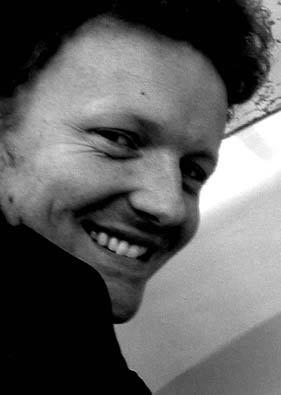
For what is a man, what has he got?
If not himself, then he has naught
To say the things he truly feels and not the words of one who kneels
The record shows I took the blows
And did it my way![1]
The well-known song ‘I Did It My Way’ reveals an individualism that marks out Western culture. God as Trinity has been ridiculed and swamped by the dominance of reason since the 18th century enlightenment. How could there be one God who is Father, Son and Holy Spirit? He must be one only (if there even is a god at all!). The idea of God as being one but not three has in part laid behind individual western theories of the person.[2] A self-centred model of ‘personhood’ is now in operation. This individualism has caused separation and isolation as individuals seek their own advancement. Loneliness is a feature of Western society which has become ‘pre-occupied with self-expression, self-fulfilment, self-realisation, and self-esteem, leading at times to the self being equated with God’.[3]
At the same time sameness has dominated our culture. Diversity is no longer appreciated or desired. Babies are ‘killed in the womb because we don’t want to bother with those that are different’.[4] Our world is marked by ‘deep alienation from God and each other’.[5]
Humanity’s problems are not limited to the West. Global humanity is alienated from God, and as a result human freedom can be secured ‘only by assuming total autonomy in a manner that excludes the total authority of God’.[6] Without God the drive for total autonomy has become the way for individuals to deal with other individuals.
The world is deeply confused about the nature of human life, because it is ‘confused about what personal being truly is’.[7] Theories of personhood and community have now become important topics of discussion. How can the Trinitarian nature of the God of Jesus Christ inform our understanding of personhood and community? What are the benefits of the analogy between the Trinity and ourselves? What are the limitations of the analogy? To do this we first need to consider God as Trinity.
[1] Final verse of Frank Sinatra’s I Did it My Way (Lyrics by P. Anka, J. Revaux, G. Thibault and C. Frankois; Dec 30, 1968).
[2] Colin E. Gunton, The Promise of Trinitarian Theology (2nd edition; Edinburgh, Scotland: T & T Clark, 1997), 93.
[3] David Broughton Knox, ‘The Gospel and Society’, in D Broughton Knox Selected Works: Volume 3 The Christian Life (edited by Tony Payne and Karen Beilharz; Sydney, NSW: Matthias Media, 2006), 155.
[4] Colin E. Gunton, Father, Son and Holy Spirit (Edinburgh, Scotland: T & T Clark, 1997), 15.
[5] Robert C. Doyle, Conflict: Christian Reconciliation against its Trinitarian and Evangelical Base (paper given at St Andrews Theological Seminary Faculty Colloquium, Manila; 21 July 2000), 2.
[6] Lesslie Newbigin, ‘The Trinity as Public Truth’, in The Trinity in a Pluralistic Age: Theological Essays on Culture and Religion (edited by Kevin J. Vanhoozer; Grand Rapids, Michigan: William B. Eerdmans Publishing Company, 1997), 1
[7] Gunton, Father, Son and Holy Spirit, 13.


No comments:
Post a Comment